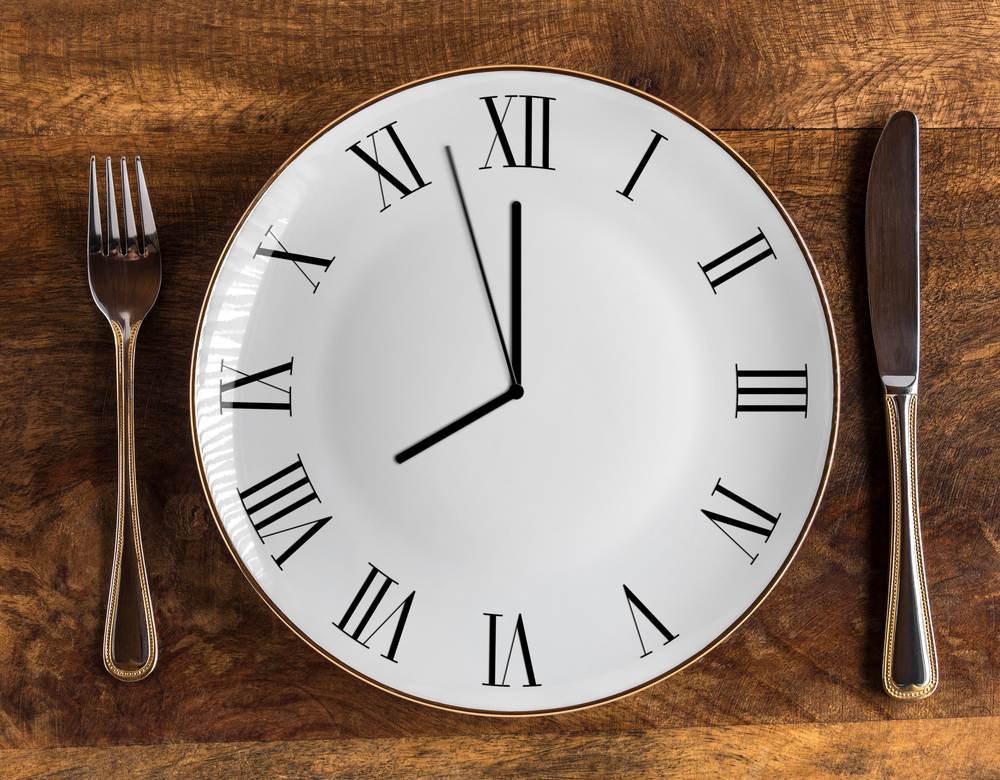Download your FREE ebook!
Fasting Health Benefits and Tips

I grew up on the notion that breakfast is the most important meal of the day, and eating 5-6 meals daily is healthier and keeps your metabolism up. So based on that, fasting would be detrimental to our health. That meant fasting the month of Ramadan and any other time of the year such as Mondays and Thursdays or the “White Days” would also be considered unhealthy. I always wondered though, why would God make us do something unhealthy?
Thanks to recent research, it’s been shown that fasting is extremely beneficial for the body on so many levels. I can’t tell you how happy that makes me feel! Before I get into those benefits and my experience with fasting, let’s have a look at what is meant exactly by fasting? And is there one or many ways to go about it?
What is fasting? And what are the different types of fasting?
Fasting is abstaining from all food and caloric drinks on certain days or the majority of the day depending on the type of fasting being followed.
- Fasting in Islam: Muslims fast anything from 12 to 22 hours depending on the time of year and where you are in the world since it’s from sunrise to sunset. There is no food or drink consumed even water.
- 16/8: With this method you fast for 16 hours a day, and eat within an 8 hour window. Most people on this method would skip breakfast until they reach 16 hours from their last meal the night before. Some people prefer to follow 14/10, 18/6 or 20/4, however 16/8 seems to be the most popular.
- 24 hour fast: Some people prefer to do a 24 hour fast once a week. They would usually stop eating at their chosen time, let’s say 7pm. And then not eat anything until the next day at 7pm.
- 5:2 diet: You eat normally for 5 days a week, and for 2 non-alternate days you eat 500 calories if you’re a woman and 600 calories if you’re a man.
- Longer period fasting: this is a general category that covers anything from a 3 day water fast to a 40 days green juice fast. Depending on their length they can be difficult without medical attention or going to a health clinic.
There has been a significant amount of research on fasting and the benefits it can have on our bodies. Here are some of the most important health benefits of fasting:
- Weight loss: Fasting can help promote weight loss for two main reasons. The first a general caloric reduction assuming you don’t overeat during the eating period. By reducing the number of hours you eat, most people tend to eat less, especially snacks, which can lead to weight loss long-term. The second and more talked about reason is that fasting encourages your body to use fat as it’s fuel which leads to higher fat burning. When you eat your body uses glucose primarily for energy. When you fast however, your body doesn’t have the steady stream of glucose and therefore turns to fat cells for energy. This is especially beneficial for men or body builders that wish to loose weight without loosing any muscle.
- Slows down the aging process: Our body’s ability to produce a natural human growth hormone known as HGH reduces as we age. This hormone is largely responsible for the health of our cells, healthy tissue in our brain, as well as our vital organs. HGH also helps hair and nails grow faster. While fasting however, HGH levels increase which helps the body age more slowly.
- Reduce risk of disease: Maintaining a healthy weight and raising HGH levels will both have a beneficial effect on reducing disease risk. However the most important benefit of fasting in reducing risk of disease is it’s effect on normalizing or increasing your body’s sensitivity to insulin. Diabetes occurs when your body stops responding to the hormone insulin that is secreted by the body when your blood glucose levels rise. Some studies have found that fasting helps your blood sugar levels by keeping them well-regulated and preventing spikes and crashes in addition to lowering insulin. Preventing a build-up of insulin allows your body to work more efficiently and thus prevents many diseases not just diabetes.
- Protects the brain: The anti-inflammatory effects of fasting helps to slow the progression of disorders like Alzeimer’s disease. Also several animal studies have shown that fasting enhances cognitive function and memory.

My fasting experience…
In the past 7 to 8 years I’ve tried different forms of fasting, besides Ramadan. Before finding out about the health benefits of fasting, I started to fast Mondays and Thursdays as encouraged by the Prophet Mohamed (PBUH) for religious reasons at first. I would make an effort to eat light on those days. I found myself longing for the after feeling of the fast and how it helped me maintain my weight despite indulging on weekends. I then moved on to the 5:2 and consumed only 500 calories on my fasting days. About 2 years ago I started fasting once a week on Thursdays and call it my digestive rest day as I would only consume green juice, soup and a light snack of pumpkin seeds and raw veggies. Recently I tried the 16:8 method of intermittent fasting, and I would eat between 12pm and 8pm.
I’m one of those people that find fasting very easy. I have friends and family members that absolutely hate it and can’t tolerate it mentally or physically. I certainly do believe that some bodies can handle it better than others. Also keep in mind that men benefit more from fasting, especially intermittent fasting, than woman. Intermittent fasting can effect the balance of hormones in women, and should be especially avoided during the time of the month or while pregnant.
I always get asked how can you have a restaurant and food blog and still maintain a healthy weight? I could go on and on about working out regularly, eating healthy etc…but honestly if I need to choose just one thing, it’s fasting regularly.
My tips on fasting:
- Experiment: Try the different fasting methods outlined above to find the best one for your body and lifestyle.
- Start slow: If you choose to try intermittent fasting for example, instead of diving into the 16:8 timing, why not start with 12:12 and then delay your first meal by an hour every few days. Even if you do a 14 hour fast for example your body will still benefit.
- Don’t overeat when you break the fast: Make sure to eat normally and healthfully during your eating window. If you stuff your face and eat McDonalds you won’t reap the rewards of fasting.
- Don’t snack during the fast: Sometimes it may seem harmless to have a couple of nuts or maybe even a bite out of your child’s breakfast sandwich, but it will make the hunger worse. Your body has received some food and will start asking for more.
- Don’t fear hunger: Feeling hungry is absolutely normal and usually goes away if you hang in their for a short while. Have some water or herbal tea and stay focused on your goal.
- Distraction, stay busy and active: I tend to keep all my errands or kitchen experiments for my fasting days, that way I keep busy and in no time it will be time to eat. I also schedule massages, manicures or other salon visits for when I’m fasting. I also going on walks and doing yoga
- Muslim fast: I find it much easier to just fast from sunrise to sunset and completely forget about food. It can be difficult for some as their is no water allowed, however I find that I’m much less hungry. It’s also amazing in the summer as I don’t get so hot when I’m out and about, and since the sun sets so late it’s very easy to eat light and go straight to bed.
- Use a stand up desk: I find it difficult to sit at a desk or on my sofa to get some work done on my laptop without my coffee or snack. Now I work standing by placing my laptop on a lap desk on my kitchen counter.

In Conclusion:
So many times we don’t eat because we are hungry but because we are either afraid we might get hungry, just because the food is there or out of habit. Many people are not hungry when they first wake up in the morning….but they eat breakfast out of habit.
Many religions, not just Islam, encourage fasting to benefit the body and the soul. And we now have research to back this up.
As mentioned before fasting has helped me maintain a healthy weight without dieting. Whenever I’ve found my weight go up by a kilo or two, I add an extra fasting day for a couple of weeks and my weight will go back down to normal. I also like how on fasting days you break away from your daily habits and routine. For me it’s going for a long walk instead of a quick high intensity workout, or having a green juice when I break my fast instead of my morning coffee.
I’ve only highlighted the subject of fasting, and didn’t go into the details you can find online or in numerous books written on the subject. Please refer to the resources below if you would like to learn more.
Sources:
Fasting and Eating for Health, by Dr. Joel Fuhrman
The Fast Diet, by Dr. Michael Mosley
Related Posts
HEALTH + WELLNESS
LIFESTYLE
HEALTH COACHING
Processing...
Thank you!
Your subscription has been confirmed.
You'll hear from us soon.




Leave A Comment